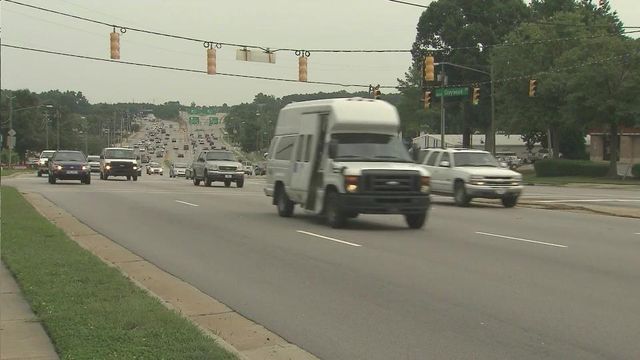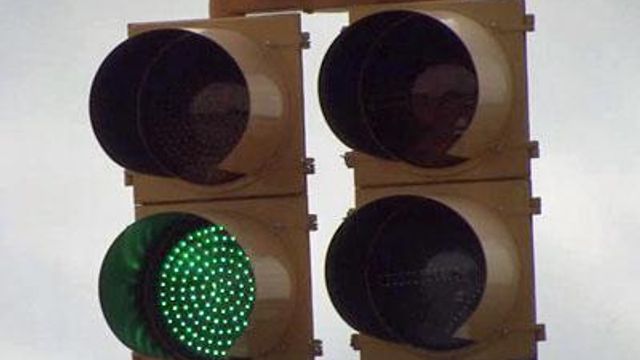Traffic signal project easing Capital Boulevard clog, officials say
City officials say a trip on Capital Boulevard should take a few minutes less than it used to. It may not sound like a lot, but planners say it adds up.
Posted — Updated“It's a busy highway here,” driver Ron McKoy said. “I just go with the flow.”
Liana Dienas uses Capital Boulevard for her daily commute to Cary. She said she’s constantly hitting the brakes.
“It’s really bad around 5:30 p.m.,” she said.
But the Capital Boulevard blues are getting better.
Raleigh traffic engineer Mike Kennon says the city has synchronized the traffic signals on its portion of the road. The change is improving the timing of signals at intersections, allowing traffic to move faster.
“We've already gotten some feedback that drivers have noticed Capital Boulevard is different,” Kennon said.
City officials say the trip on Capital Boulevard should take a few minutes less than it used to. It may not sound like a lot, but planners say it adds up.
“Multiply a minute and a half by 67,000 vehicles, and that's a lot of time, that's a lot of environmental savings,” Kennon said. “That's just huge.”
Engineers are synching more than 600 signals all over Raleigh. The northeastern part of the city is done. Southwest Raleigh should be completed later this fall, including signals along Western Boulevard. The other parts of the city should be online next year.
When the multimillion-dollar project is done, engineers will be able to adjust the timing for different times of the day and for special events. In the meantime, Dienas and other drivers try to catch the lights just the right way and speed through town.
And if they miss the wave, they just have to be patient.
• Credits
Copyright 2024 by Capitol Broadcasting Company. All rights reserved. This material may not be published, broadcast, rewritten or redistributed.





